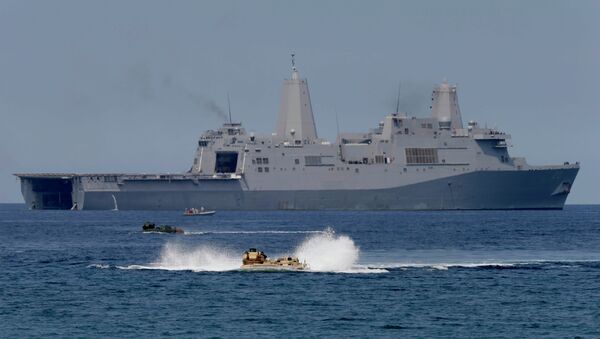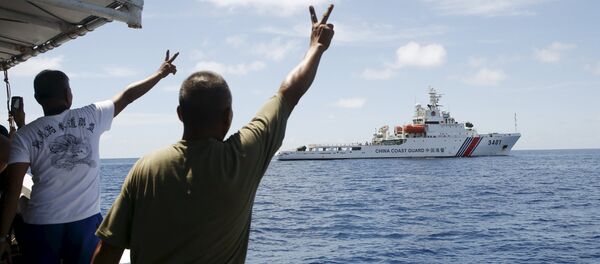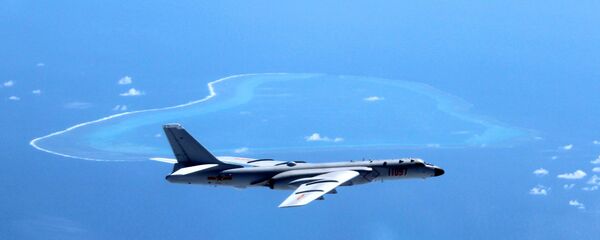In the wake of the Hague-based Permanent Court of Arbitration decision that determined Beijing has no legal basis for claiming historical rights to territories within the nine-dash line in the South China Sea, tensions have continued in the waterway.
On Monday, Sun Jianguo, admiral and deputy chief of the Joint Staff Department of China’s Central Military Commission, warned against continued US military aggression.
"But China consistently opposes so-called military freedom of navigation, which brings with it a military threat which challenges and disrespects the international law of the sea," he said. "This kind of military freedom of navigation is damaging to freedom of navigation in the South China Sea, and it could even play out in a disastrous way."
But on Wednesday, US Chief of Naval Operations John Richardson maintained that the US will continue to operate in the region.
Describing a meeting between Richardson and Yuan Yubai, commander of the Chinese North Sea Fleet, the US Navy stated that the former "underscored the importance of lawful and safe operations in the South China and elsewhere professional navies operate."
"The US Navy will continue to conduct routine and lawful operations around the world, including in the South China Sea, in order to protect the rights, freedoms and lawful uses of sea and airspace guaranteed to all," Richardson said, adding, "This will not change."
Also on Wednesday, state news agency Xinhua reiterated Beijing’s calls for outside influences to refrain from creating animosity in the South China Sea.
"Western countries have a long history of failing to establish orderly rule over parts of the world. The Middle East is a classic example," it said.
A highly-contested region through which roughly $5 trillion in international trade passes annually, most of the waterway is claimed by China, though there are overlapping claims by Taiwan, Vietnam, the Philippines, Malaysia, and Brunei.
The US and its Pacific allies have expressed opposition to China’s construction of artificial islands in the Spratly archipelago, accusing Beijing of attempting to establish an air defense zone. China maintains it has every right to build within its own territory and that the islands will be used primarily for civilian purposes.




